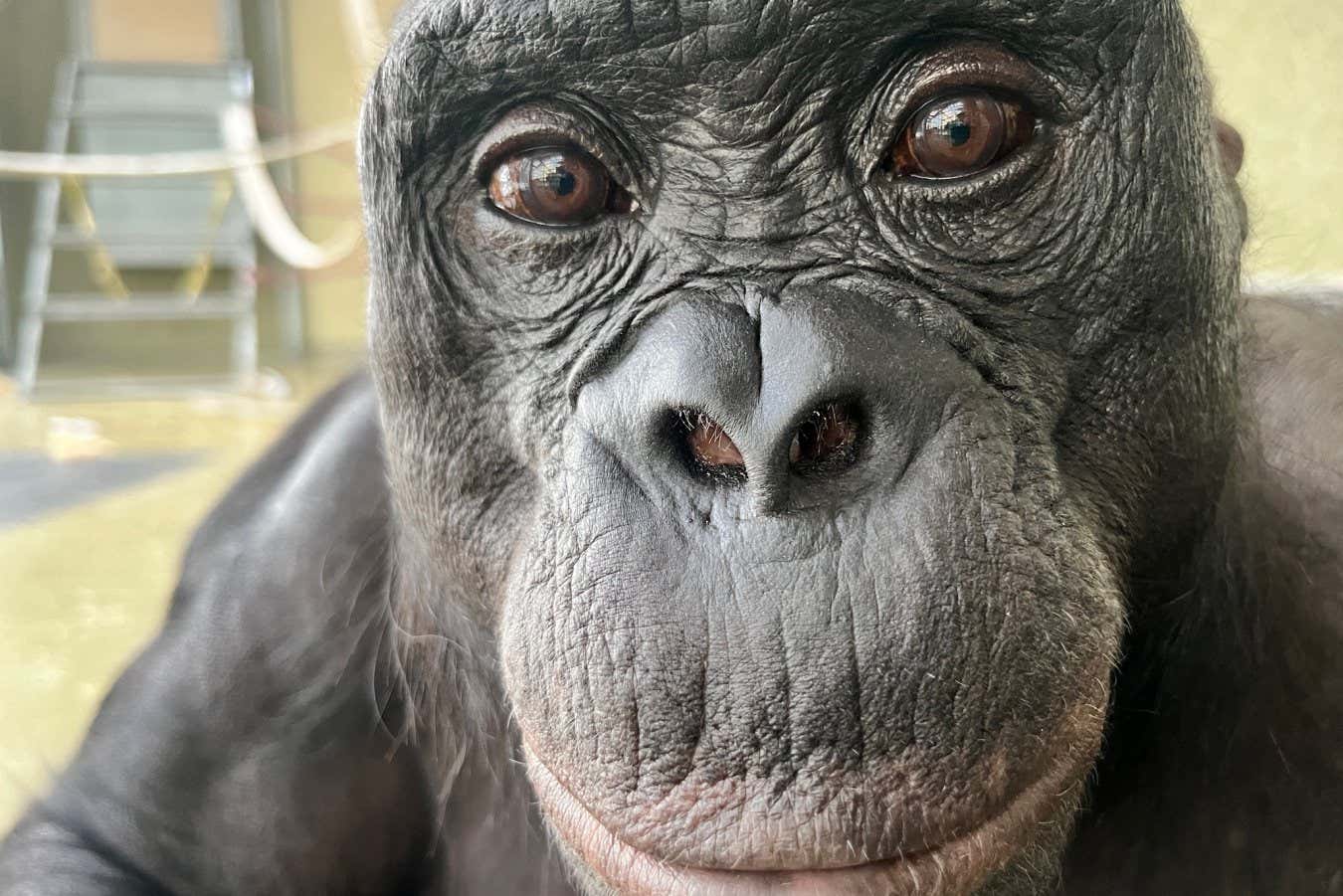Recognising that someone lacks information you possess is key for effective communication and cooperation, and bonobos seem to share this skill with humans
By Sophie Berdugo
3 February 2025
Kanzi, one of three captive bonobos whose mental abilities were tested in the study
Ape Initiative
Bonobos are quick to help a person who doesn’t know what they know, a sign that they can deduce the mental states of others.
The capacity to think about what others are thinking, known as theory of mind, is an essential skill that allows humans to navigate their social worlds. It enables us to recognise that someone may hold different beliefs or perspectives to our own, underpinning our ability to understand and help others appropriately.
Read more
Spiders think with their webs, challenging our ideas of intelligence
Advertisement
The question of whether our closest living relatives also have theory of mind has been hotly debated for decades. Despite some mixed results, non-human great apes seem to have some aspects of this capacity, suggesting it is more evolutionarily ancient than once thought. For example, wild chimpanzees that see a nearby snake, albeit a fake one, seem to call out to alert group members they know haven’t already seen it.
But we have been missing clear evidence from controlled settings that primates can track a perspective that differs from their own and then act upon it, says Luke Townrow at Johns Hopkins University in Maryland.
To investigate this, Townrow and Christopher Krupenye, also at Johns Hopkins University, tested if three male bonobos at the Ape Initiative research centre in Iowa could identify ignorance in someone they were trying to cooperate with, and then gesture to them to help solve the task.
